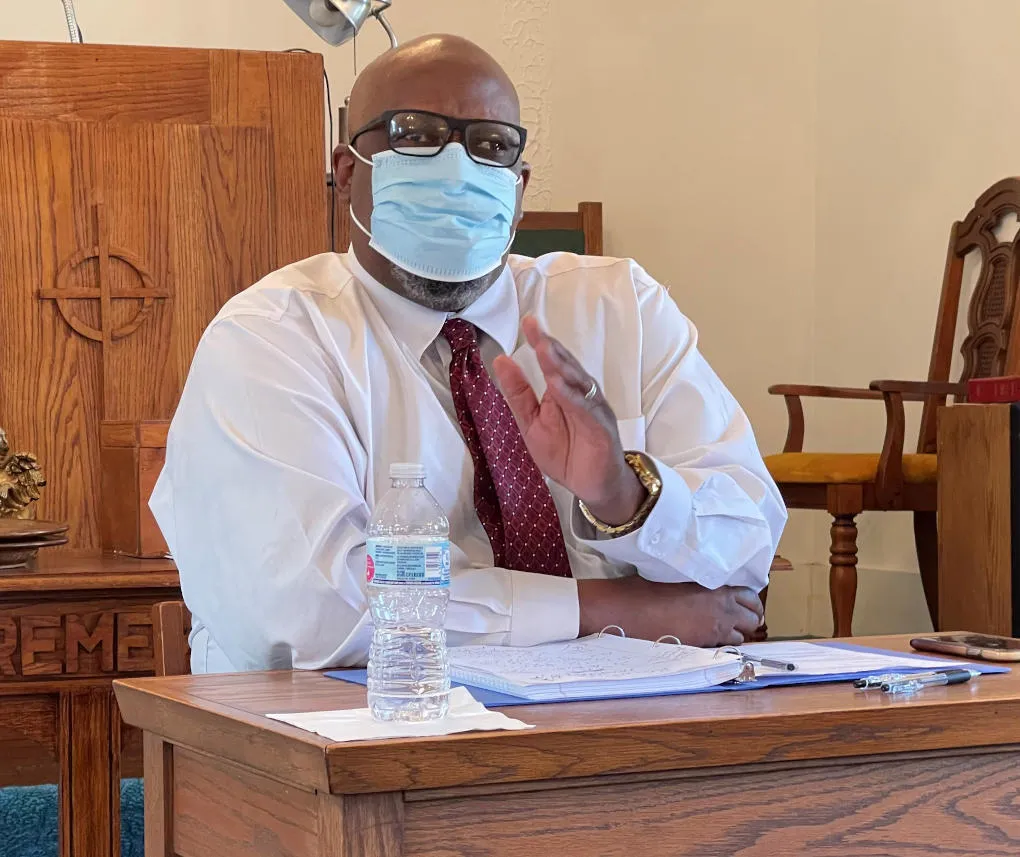Murray State University historian Brian Clardy hopes “progressives and concerned conservatives” will unite to stop attempts by politicians and pundits to “sanitize and pasteurize” American history by turning Critical Race Theory “into their latest bogeyman.”
Featured speaker at the Mayfield-Graves County NAACP’s August meeting, Clardy, an Episcopalian, quoted Isaiah 1:18; “Come now, and let us reason together.”
Kentucky is one of several states in which conservative Republican lawmakers are sponsoring legislation to ban the teaching of Critical Race Theory in public schools. Critics say CRT portrays all white people as oppressors of African Americans.
Clardy says that's not true.
“‘Critical race theory’ has recently become a buzzword used as a catch-all to refer to racial equity efforts being implemented in schools,” wrote Olivia Krauth in the Louisville Courier-Journal. “But that is not quite what it actually is.”
She defined CRT as “a theoretical framework that examines how institutions may perpetuate systemic racism in the United States. It holds that racism is real and is ingrained in systems, like the legal system or public schools, to the detriment of people of color and the benefit of white people.”
Clardy said CRT began as a legal construct in law school. But it spread to other areas of academia, such as graduate schools.
Krauth added that the flood of anti-CRT bills represent a pushback "against conversations about systemic racism, white privilege and critical race theory in K-12 classrooms, often calling such topics divisive or alleging districts are indoctrinating children. The wave of legislation comes as school districts are seeking to rectify the root causes of racial disparities in student outcomes and make history curriculum more accurate and inclusive.”
"Racism was in the DNA of the founders of this country"
Clardy said students in law schools, colleges, and universities study CRT to explore the ways in which racism, current and past, harms persons of color in important issues of public policy such as education, healthcare, housing, economics, and voting.
For example, slavery was legal in all thirteen colonies when they declared their independence from Great Britain in 1776 and remained legal in the South and border states, including Kentucky, until the Civil War and the 13th Amendment ended slavery. Most of the signers of the Declaration of Independence were slaveholders, though some opposed slavery. Nearly half of the framers of the Constitution had slaves.
At least a dozen presidents owned slaves at one time or another – eight while they were in office. “Racism was in the DNA of the founders of this country,” Clardy said.
Slavery was the root cause of the Civil War, and racism underpinned the post-war Jim Crow system in the South, in which states passed laws segregating Blacks from whites on a less-than-equal basis and denied the vote to African Americans, Clardy said.
He said that some conservative politicians have “weaponized” CRT, believing it will win them votes among whites who “feel threatened by the country’s changing demographics,” meaning increasing numbers of people of color. “In other words, ‘the other,’” Clardy added.
Said Clardy, “If you teach that slavery was the cause of the Civil War, [CRT critics] … say ‘No, no. It was states’ rights,’ really meaning the right to have slaves. They say Jim Crow was about whites who had the right to say who could come into their businesses. But those 'whites only' signs told what they [segregationists] really meant.”
Opposing anti-CRT bills
At the meeting, the Rev. Bruce Dobyns, Mayfield-Graves Branch president, handed out a statement from the Louisville NAACP that urges “all religious, civic, and social organizations” in the state to oppose anti-CRT legislation. “What is essentially being taught to students of color (and all students) is the contributions of ALL people for the success of this country. The curriculum being challenged by those fearful of the truth about current educational practices, policies, and procedures is the curriculum that teaches students of color (and all students) that people of color have positively impacted our society,” said the statement, signed by branch president Raoul Cunningham.
Clardy said Donald Trump, who carried the Republican Red Bluegrass State in landslides both times he ran, didn’t invent racism. Rather his “ugly sentiments gave racism its voice.” He added that “a lot of folks who kept their racism quiet now feel they have permission to say what has been in their hearts.” Even so, Clardy is optimistic for the future.
“Not all whites in the Jackson Purchase and elsewhere are racist; there are many concerned conservative Republicans who don’t like what they are seeing. Progressives need to look past labels and past disagreements and link up with them to make sure that our democratic experiment does not fail.”
Dobyns said that while CRT isn't taught at the K-12 level, "the concerns it identifies should be." He compared CRT to what doctors learn in medical school. "Not everybody goes to medical school or studies CRT, but everybody benefits from the theory and practice of CRT and medicine."
--30--








